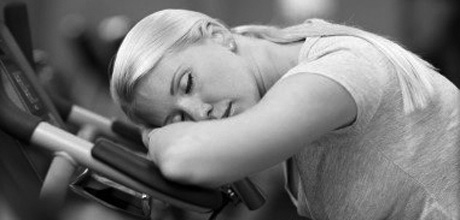Your muscles need recovery time to be able to repair, change and function properly before your next training session. Overworked muscles, damaged muscles and muscles that have worked hard will need some kind of downtime, but most of the time a good night’s sleep is all that is required.
You can train every day, provided you don’t hyperload the same muscle groups and don’t put the same pressure on them several days in a row. That in fact, is the best and the fastest way to make fitness part of your lifestyle.
The problem with complete rest days, blank days on the calendar where you virtually do no exercise whatsoever, is that your mind wanders and if you are not into fitness already, you have higher chances of dropping out and giving up. One day without training, can potentially be the last day of your entire fitness journey. One day can become two, then three then a week and then a month – once you stop, it is harder to get back into it.
If you’ve ever jogged, you know how much harder it is to start after a complete stop – it is always more preferable to slow down without losing momentum instead of taking a break. It is the same with regular exercise – it is always more preferable to slow down than do nothing for a day. Even if you do stretching, yoga, or a bit of light walking, it will still register in your mind as exercise and keep you tuned.
Whatever you do, don’t stop. There are other ways to rest your muscles and recover: get more sleep, stay hydrated and up your protein intake (before and post-workout). If you don’t overtrain to the point of muscle failure you won’t need to take complete days off so it is important that you stay on the level of training when you push yourself just enough to feel challenged but not so hard that it is painful to move the next day.
Most of us these days simply don’t move enough, we drive everywhere, we sit at our desks all the time and then we rest in front of the TV. Our lives are getting more stationary and it is more important than ever to introduce as much activity on a daily basis as possible and make it the norm.
Exercise becomes fun when it becomes enjoyable, but to get to that point you need to get used to it first. You can’t view it as being a chore you hate coming back to – this will just make you want to quit. Try to think of exercise as something you are slowly integrating into your lifestyle rather than another chore to add to your list of things ‘To Do’.
Everyone struggles in the beginning but those who see it through eventually get to the fun part of it, the enjoyable part when it becomes the way to rest from everyday tasks and feel a little more energised.

